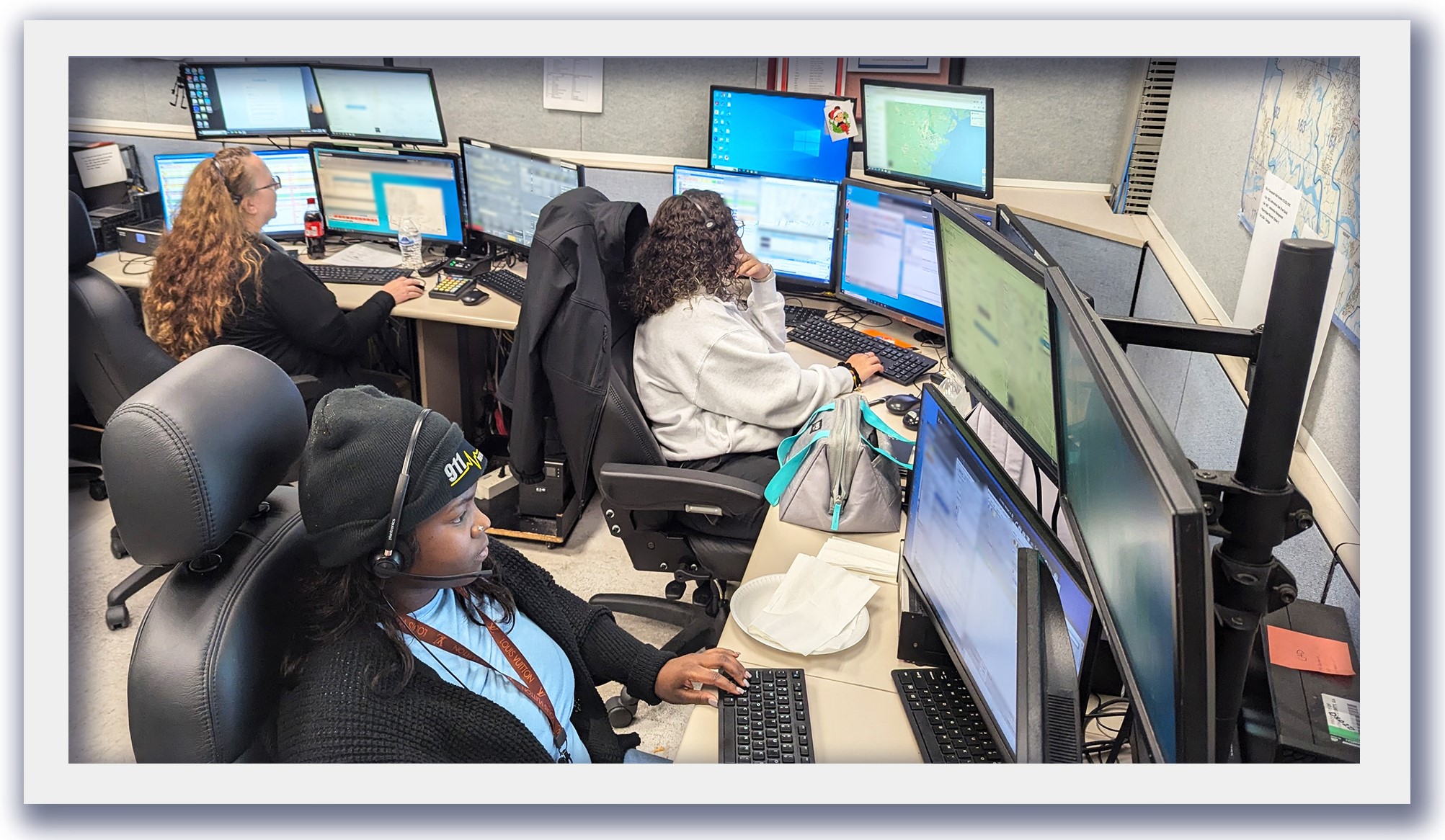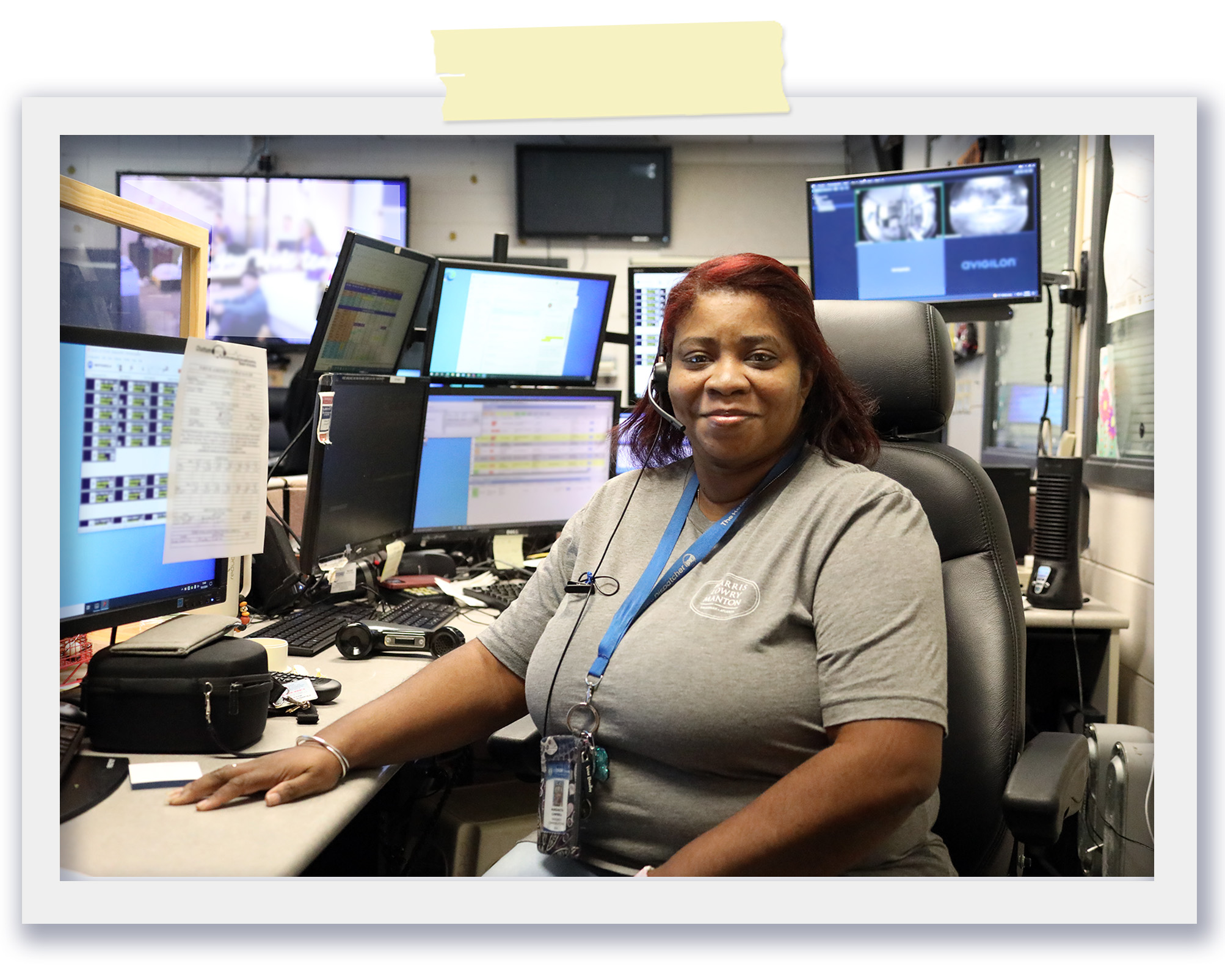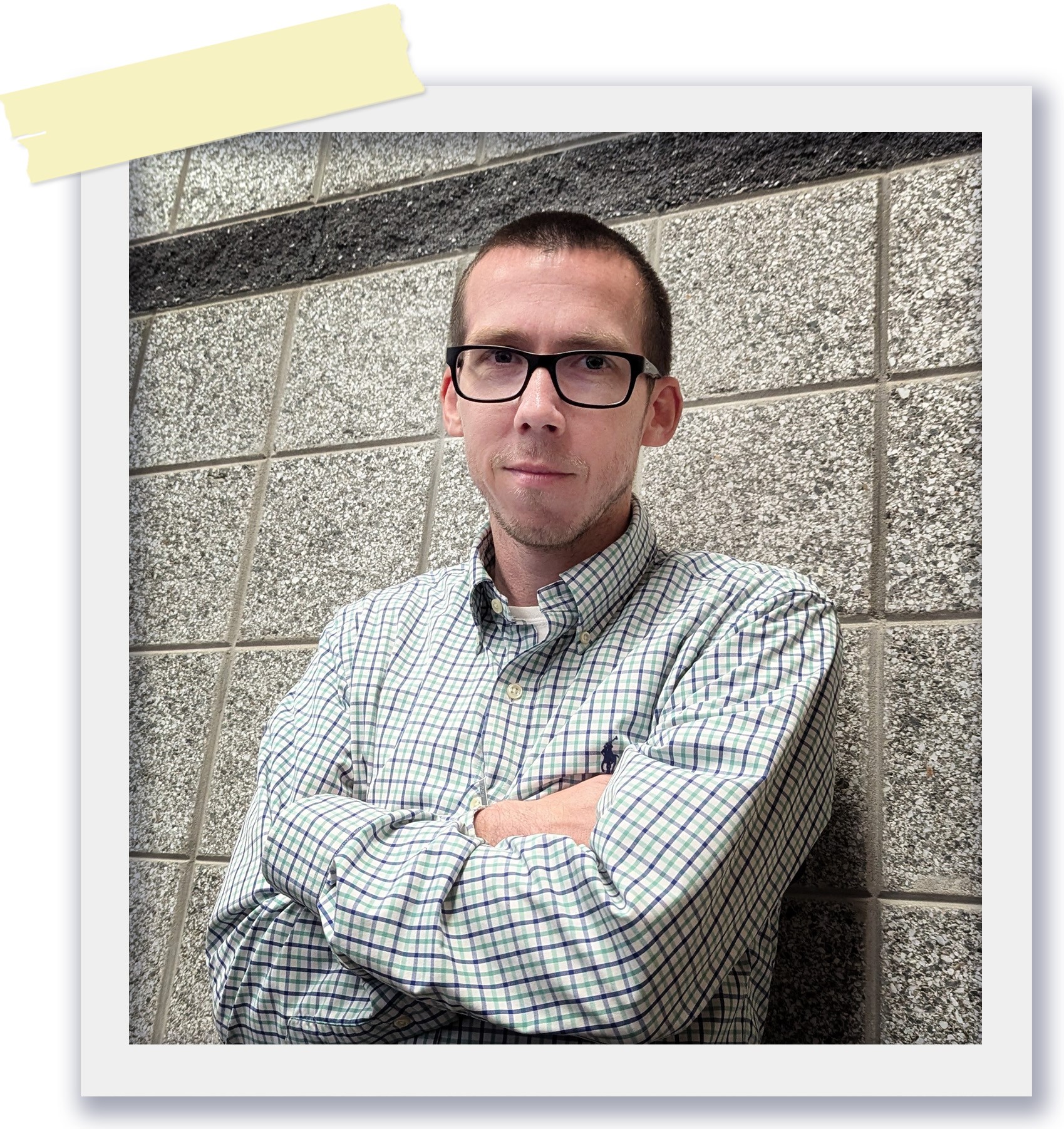"We're passionate about making sure that people get help."

Hurricane Helene began knocking at the door of Chatham County under cover of darkness, and Chatham E911 was ready for her. No one expected Helene would bring the need to answer almost 5000 calls before she left the area, but the training and the commitment of E911 Call-Takers and Dispatchers kicked in to overdrive, and there was calm within the storm.
Chatham 911 Communications Services Director Diane Pinckney is proud of the way her team rolled with the storm, relying on experience, creative problem solving, and on each other to handle exponentially more calls than usual. “Our average call volume per day is about 1500 at the most. But we had all kinds of calls related to fire, structure fires, power lines down, even reports of a building structure collapsing. We also began getting calls from other jurisdictions that we actually weren't expecting, so we had to be a little bit creative, as to how we were able to get those calls to the centers that would actually handle them.”

Deputy Director Russ Palmer was grateful to be able to rely on the working relationship Chatham’s 911 Center has with the Fire Departments’ Operations Centers, as well. “The 24 hours around the event, when it hit we handled about 800 fire calls. On a normal day, it's less than 100 so that's eight times our normal call volume in a 24 hour period! We worked with the fire departments to send out all the emergency calls as quick as we could, and then we worked with them to set up their own operation centers for the fire agency in a way that they could go through and prioritize and self-assign the low acuity calls, like the trees down, the power lines down, that kind of stuff, so it didn't tie up the 911 and dispatchers could focus on the actual events. That was a lot of great partnership with all the fire departments.”
Chatham was able to field calls for Bacon and Glynn Counties in addition to local calls for assistance. The experience will actually bear fruit for 911 Centers across the state when Chatham hosts a statewide workshop to develop and share procedures for Counties to be ready to back each other up in future emergencies. Locally, since the implementation of the new system, Chatham E911 has logged in about 10,000 staff training hours, with over 3,000 this year just fine-tuning things that come to light in quality assurance reviews every month. This commitment to continuous education for the staff is so beneficial, Palmer says, because it sets them up so that when the big event does happen, like this one, those training instincts kick in, and it’s just second nature for them. Pinckney echoes this, “They basically have learned how to work together and anticipate needs and have fun doing it. I think the training piece is the biggest foundation for that, so they adapt easily and quickly, and they know how to handle those calls, even those unexpected calls, to try to come to a conclusion or find a solution to making sure those people get help.” 
“The safety of our first responders and of our citizens is a high priority.”
“What makes it satisfying is when our calls have a good outcome, anytime that we can help our citizens. . . what makes it satisfying is knowing that we’re giving it our all and doing our very best to try to assist them.”
-- Margarita Campbell, Chatham Emergency Services Call Taker/Dispatcher

“I think an important piece to always remember is that, you know, we live, work and play in the community as well. So we had staff members that are still without power. We had staff members that had damage to their homes, damage to their vehicles, and they still would come in and be committed to serving the public while they were going through a crisis at home too.” – Russ Palmer, Chatham Emergency Services Deputy Director
Read More In This Series : Snapshots of Service
Asking the Questions, Answering the Needs
